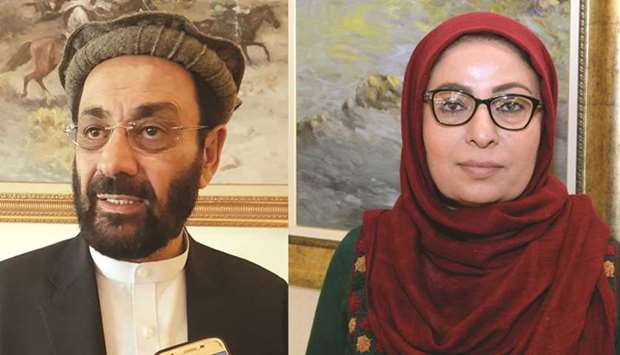There is no option but to have a ceasefire in Afghanistan, Dr Ghairat Baheer, Afghanistan’s Hizb-e-Islami political in-charge, has said.
“Unfortunately, we are losing 300 Afghan people, (who are killed) daily in Afghanistan. For that reason, ceasefire is a must,” he told reporters on the sidelines of the Intra-Afghan Conference for Peace, which started yesterday in Doha.
The two-day peace talks, sponsored by Qatar and Germany, have gathered several high-profile Afghan politicians and civil society activists in Doha with the aim of supporting the peace process in Afghanistan.
Dr Baheer noted that ceasefire is “one of the burning Afghan issues” that should be proposed and discussed during the meeting, which concludes today.
However, he stressed that they are not expecting a permanent ceasefire to come up from the summit.
“We are still in a very preliminary stage but let’s hope this conference will pave the way for further and detailed discussions, which will result in a ceasefire and permanent cessation of war in Afghanistan,” Dr Baheer said.
About a possible agreement from the talks, he said: “It depends on the participants and which kind of future plan they will agree upon. In any case, communications are issued and given to the press at the end of such gatherings and meetings.”
“I think it is somehow complementary to what is going on between the Taliban and the Americans; so, we hope something fruitful will come out of this discussion,” he observed.
“In general, there is a lot of frankness and tolerance and everyone came up with very constructive proposals. So, I am sure we will have some kind of a consensus in order to proceed to further dialogue,” Dr Baheer added.
High Peace Council member Asila Wardak echoed Dr Baheer’s statement, saying the discussion was going well for both parties.
Referring to the Taliban side, she said they clearly mentioned their policy and strategy on women’s rights and economic projects in the future, as well as other concerns such as drug issues and killings.
“From the Afghanistan side, everybody is emphasising the ceasefire, but if they (two sides) are not happy or do not accept such an option, hopefully they will at least establish a committee to reduce civilian killings,” Wardak said, adding that the delegates are also hoping to have a resolution or an agreement at the end of the programme for a follow-up.
“In any case, we have to put an end to this ongoing war,” she stressed, citing that youth and women groups have been active and voicing their concerns.

Dr Baheer, Asila Wardak

